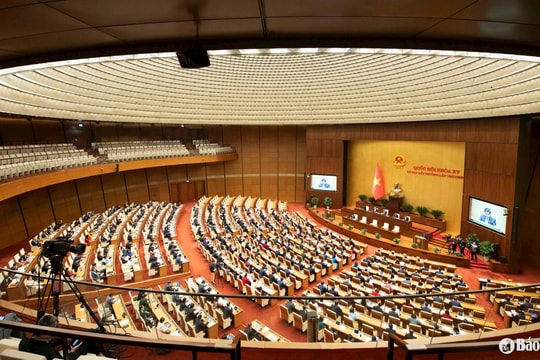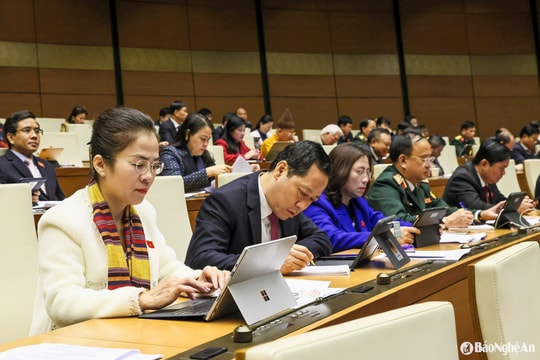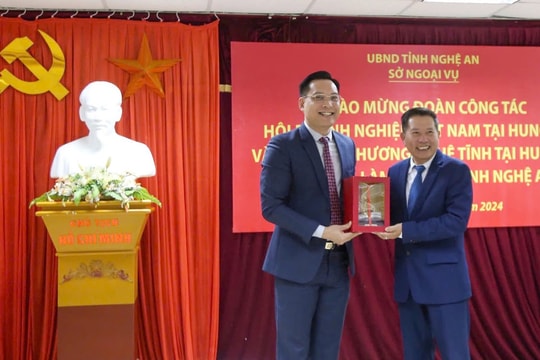How to reduce 'useless' meetings?
In recent days, public opinion has been interested in the opinion of Minister of Planning and Investment Nguyen Chi Dung: "The most difficult thing for a minister is not professional work but assigning deputy ministers to attend meetings. The Ministry receives an average of 30 meeting invitations per week."
Prof. Dr. Nguyen Viet Tien (Deputy Minister of Health): 20% of meetings are less important
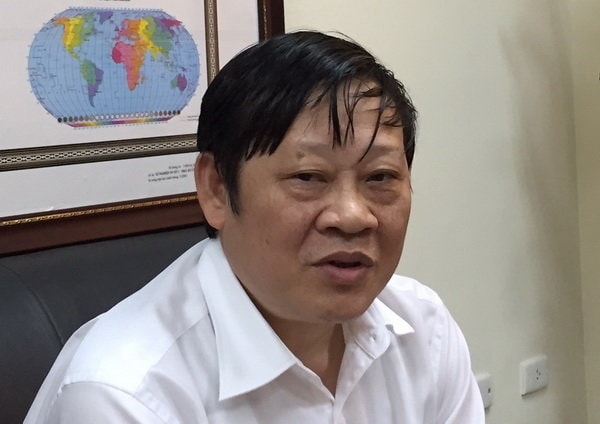 |
| Mr. Nguyen Viet Tien - Photo: LAN ANH |
I have meetings almost every day. There are meetings with important initial content, but after the meeting, it seems normal, not to the point of holding a meeting. However, sometimes we have to meet to discuss and dissect the problem before concluding the content.
I think that about 20% of the meetings I attend are less important. Therefore, to reduce meetings, the organizing committees in ministries and localities need to invest time and effort in preparing documents, meeting formats, and meeting content to bring the highest efficiency. For example, meetings should be organized in one session when the same participants attend to reduce travel and organization time.
To do so requires better support and advisory departments and better coordination. Otherwise, leaders at all levels, not only ministry leaders but also government leaders, will spend a lot of time in meetings.
Dr. Hoang Ngoc Vinh (Director of the Department of Vocational Education, Ministry of Education and Training): "Overwhelmed" by the meeting
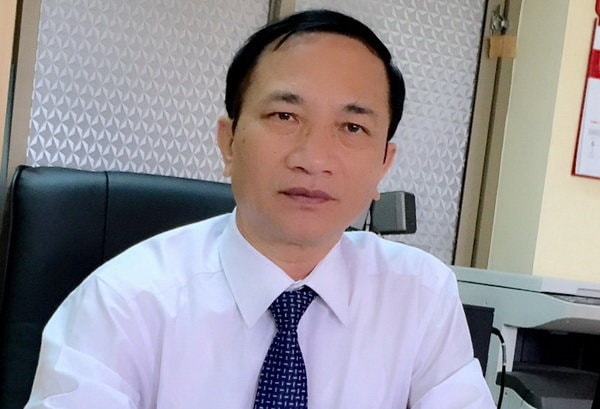 |
| Mr. Hoang Ngoc Vinh - Photo: NGOC HA |
For a long time now, we have had to “live with” the situation of having too many meetings. This is common in many places. In fact, in other countries, they also have a lot of meetings.
After all, meetings are necessary in many cases. Meetings cannot be postponed if a superior needs to direct an urgent matter, or when it is necessary to consult experts to reach an important decision. But the problem is how to hold meetings effectively.
In our country, the number of meetings does not always go hand in hand with quality. Many meetings are “worthless”, the quality of document preparation is poor, wasting time “discussing” without much meaning for the subsequent direction and management. Sometimes we meet for a long time, discuss several times, but in the end it is almost like the first time.
I myself sometimes feel overwhelmed when meeting with outside units. Many times I have refused to attend meetings because I feel that I do not have a deep understanding of the invited field. But there are also cases where the unit organizing the meeting wants to make it grand and has to invite delegates with “ranks and positions” to be present and make a few statements, making both the host and the guests suffer.
To have an effective meeting, you must clearly define the objectives, main content, and nature of the meeting, and then determine the correct requirements for the meeting participants. Do not be too concerned with the "position and status" of the meeting participants to try to make a meeting formal, regardless of the quality and effectiveness of the meeting.
In my opinion, with the current development of information technology, we should promote online meetings to save on travel costs and time. Above all, the organization of meetings must also be more professional for the meeting to be effective.
I know there are leaders who, when invited to a meeting, have their subordinates prepare diligently because many issues are not something that leaders can grasp because they are the expertise of those directly involved.
Currently, it is still common to have to wait until a meeting to receive documents, while the documents should have been sent in advance so that delegates have time to research, collect, and contribute truly quality opinions.
Mr. Nguyen Trong Thua (Deputy Minister of Home Affairs): Should increase communication via email
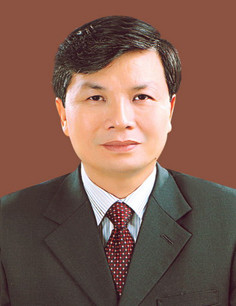 |
| Mr. Nguyen Trong Thua - Photo: moha.gov.vn |
It is true that officials and leaders attend too many meetings. There are weeks when there are so many meetings that the Ministry of Home Affairs cannot send leaders to attend them, because the Ministry of Home Affairs only has 5 deputy ministers. There are meetings where the deputy minister must attend, and there are meetings where the minister must attend. If the deputy minister attends instead, he will be reprimanded.
Regarding the quality of meetings, in reality, there are many meetings that are not of high quality because Mr. A was sent to attend meetings instead of Mr. B when Mr. B was on a business trip. Because he was going instead, it was not his area of responsibility so he could not grasp it in depth. However, because he was busy with meetings to handle many issues, when he returned from the meeting, Mr. A did not discuss, so the next meeting, Mr. B had a different opinion. There are situations where the meeting was agreed upon but when the document was written, the content was different, changed from the meeting conclusion. So sometimes more meetings had to be organized.
To overcome the above situation, we have implemented e-Government, need to minimize meetings because technology has developed, allowing online meetings, work exchange via email, phone...
An unnamed department head: Meetings are so hectic!
It is true that there are a lot of meetings. On average, department-level officials attend 5-7 meetings a week, which means one meeting a day. In some cases, there are more meetings, some from 7:30 am to 6 pm. Meetings keep us busy.
Some people often joke with each other that we are born just to attend meetings, meetings create GDP, meaning that only meetings create value, no need to work!
I think there are a few reasons. Firstly, the regulations between the sectors are still overlapping and unclear, so there must be meetings to connect these sectors. This is the right thing to do.
Second, the hierarchy mechanism is not clear. Most of the events that arise at the leadership level, the leadership level wants to grasp, wants to listen, wants to direct, but in fact there are unnecessary things like that that lower levels can direct.
Therefore, the consequence of this is that at the branch level, the branch leader gives one correct direction, but tomorrow at the department or even at the ministry, the direction is different. Only the executive level suffers and so the meetings continue without solving any problems.
Third, there is a situation where some leaders are afraid of responsibility and lack expertise. That is why they hold meetings all day to hear as many opinions as possible. There are issues that are very clear, the legal basis is clear, but they still have to meet to hear opinions and discuss back and forth to be sure. Or there are very small issues but they still have meetings.
Fourth, many meetings are required to report to the leaders. Because they do not have time to read the documents submitted, the best way is to hold meetings for the departments and offices to give their opinions and hold meetings on certain days and months. Regardless of whether the problem is big or small, the common practice today is almost a habit of having meetings.
Fifth, many of our officials and civil servants lack practical experience and are not proficient in policies and regulations, so their advice is often inaccurate. The quality of public administration in Vietnam currently lacks good civil servants, so many policies are born from cold rooms.
In short, the time and effort spent on meetings is a lot but the management efficiency is not high. The Prime Minister's request for the working group to inspect the implementation of the Prime Minister's and the Government's instructions and conclusions is very correct, in order to prevent the assignment of tasks that are slow to complete, and meetings that are held forever but do not reach a conclusion on the problem.
The solution to overcome the frequent meetings of state officials is to have a supervisory agency - the Ministry of Justice - to eliminate all overlapping inter-sectoral regulations.
In addition, it is necessary to decentralize clearly to prevent superiors from interfering too deeply in the work of subordinates, causing administrative disorder. Decentralization must be accompanied by responsibility to ensure the quality of public service and reduce meetings.
In addition, leaders and civil servants should stop listening to reports because reports are always good and reports are always meetings. Superiors must reduce meetings to spend time going out into the field, having dialogues, listening to people's opinions, and evaluating whether the policies issued are correct, on target, and beneficial to society, the people, and businesses.
So, despite all the meetings, people still talk about far-fetched policies, or policy makers have square-legged disease, meaning they only sit at their desks to make policies.
The content and format of the meeting must be improved to make it truly effective. The organizing committee should send documents via email at least 3-5 days in advance for participants to read and study before attending the meeting, so that the meeting can save time and be effective.
According to Tuoi Tre
| RELATED NEWS |
|---|

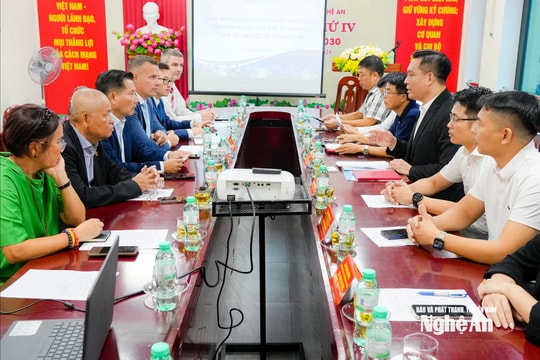
.jpg)

